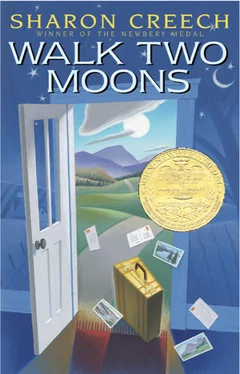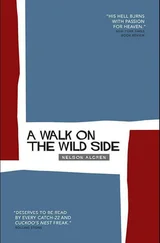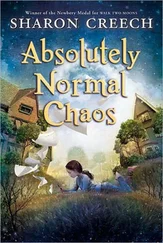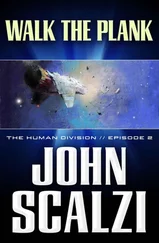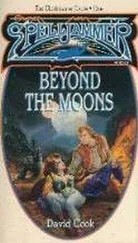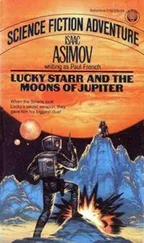I thought of Phoebe and knew that if she were here, she would be warning us that the boy was a lunatic who would hack us all to pieces. I was wishing we had never stopped at the river, and that my grandparents would be more cautious, maybe even a little more like Phoebe, who saw danger everywhere.
As the boy stared at us, Gramps said, “Howdy.”
The boy said, “This here’s private property.”
Gramps looked all around. “Is it? I didn’t see any signs.”
“It’s private property.”
“Why heck,” Gramps said, “this here’s a river. I never heard of no river being private property.”
The boy picked up Gramps’s pants and slid his hand into a pocket. “This land where I’m standing is private property.”
I was frightened of the boy and wanted Gramps to do something, but Gramps looked cool and calm. He sounded as if he hadn’t a care in the world, but I knew that he was worried by the way he kept inching in front of me and Gram.
I felt around the riverbed, pulled up a flat stone, and skimmed it across the water. The boy watched the stone, counting the skips.
A snake flickered along the bank and slid into the water.
“See that tree?” Gramps said. He pointed to an old willow leaning into the water near where the boy stood.
“I see it,” the boy said, sliding his hand into another of Gramps’s pockets.
Gramps said, “See that knothole? Watch what this here chickabiddy can do to a knothole.” Gramps winked at me. The veins in his neck were standing out. You could practically see the blood rushing through them.
I felt around the riverbed and pulled up another flat, jagged rock. I had done this a million times in the swimming hole in Bybanks. I pulled my arm back and tossed the rock straight at the tree. One edge embedded itself in the knothole. The boy stopped rummaging through Gramps’s pockets and eyed me.
Gram said, “Oh!” and flailed at the water. She reached down, pulled up a snake, and gave Gramps a puzzled look. “It’s a water moccasin, isn’t it?” she said. “It’s a poisonous one, isn’t it?” The snake slithered and wriggled, straining toward the water. “I do believe it has had a snack out of my leg.” She stared hard at Gramps.
The boy stood on the bank holding Gramps’s wallet. Gramps scooped up Gram and carried her out of the water. “Would you mind dropping that thing?” he said to Gram, who was still clutching the snake. To me he said, “Get on out of there, chickabiddy.”
As Gramps put Gram on the riverbank, the boy came and knelt beside her. “I’m sure glad you have that knife,” Gramps said, reaching for it. As he made a slit in Gram’s leg across the snake bite, blood trickled down her ankle. I grabbed Gram’s hand as she stared up at the sky. Gramps knelt to suck out the wound, but the boy said, “Here, I’ll do it.” The boy placed his mouth against Gram’s bloody leg. He sucked and spit, sucked and spit. Gram’s eyelids fluttered.
“Can you point us to a hospital?” Gramps said.
The boy nodded as he spit. Gramps and the boy carried Gram to the car and settled her in the back seat while I snatched their clothes from the riverbank. We placed Gram’s head on my lap and her feet on the boy’s lap, and all the while the boy continued sucking and spitting. In between, he gave directions to the hospital. Gram held onto my hand.
Gramps, still in his boxer shorts, and dripping wet, carried Gram into the hospital. The boy’s mouth hovered over her leg the whole time, sucking and spitting.
Gram spent the night in the hospital. In the waiting room, the boy from the riverbank sprawled in a chair. I offered him a paper towel. “You’ve got blood on your mouth,” I said. I handed him a fifty-dollar bill. “My grandfather said to give you this. That’s all the cash he has right now. He said to tell you thanks. He’d come out himself, but he doesn’t want to leave her.”
He looked at the fifty-dollar bill in my hand. “I don’t need it.”
“You don’t have to stay,” I said.
He glanced around the waiting room. “I know it.” He looked away and then said, “I like your hair.”
“I was thinking of cutting it.”
“Don’t.”
I sat down beside him.
He said, “It wasn’t really private property.”
“I didn’t think so.”
Later, when I went in to see Gram, she was all tucked up in bed, pale and sleepy. Next to her on the narrow bed, Gramps was lying on top of the covers, stroking her hair. A nurse came in and made him get off the bed. He had, by now, put his pants on, but he looked a wreck.
I asked Gram how she was feeling. She blinked her eyes a few times and said, “Piddles.”
Gramps said, “They must’ve given her something. She doesn’t know what she’s saying.”
I leaned down and whispered in her ear. “Gram, don’t leave us.”
“Piddles,” Gram said.
When the nurse left the room, Gramps climbed back on top of the bed and lay down next to Gram. He patted the bed. “Well,” he said, “this ain’t our marriage bed, but it will do.”
Gram was released from the hospital the next morning mainly because she was so ornery. Gramps wanted her to stay another day, but Gram climbed out of bed and said, “Where’s my underwear?”
“I guess this cantankerous woman is getting out of here,” Gramps said.
I think fear had made us all a little cantankerous. I had spent the night in the waiting room. Gramps offered to get me a motel room, but I was afraid that if I left the hospital, I would never see Gram again. The boy we had met at the river curled up in an armchair, but I don’t think he slept either. Once he used the telephone. I heard him say, “Yeah, I’ll be home in the morning. I’m with some friends.”
The boy woke me up at six o’clock and said Gram was much better. He handed me a piece of paper. “It’s my address, in case you ever want to write or anything, but I’d understand if you didn’t—”
I opened the paper. “What’s your name?”
He smiled. “Oh yeah, right.” He took the paper and added his name: Tom Fleet. “See ya,” he said.
As we were checking out of the hospital, I asked if we should call my father. Gramps said, “Well, now, chickabiddy, I thought about that, but it’s only going to make him worry. Do you think we could wait to call him when we get to Idaho?”
Gramps was right, but I was disappointed. I was ready to call my father. I wanted very much to hear his voice, but I was also afraid that I might ask him to come and get me.
Outside the hospital, I heard the warbling of a bird, and it was such a familiar warble that I stopped and listened for its source. Bordering the parking lot was a rim of poplars. The sound was coming from somewhere in the top of one of those trees, and I thought, instantly, of the singing tree in Bybanks.
Next to my favorite sugar maple tree beside the barn is a tall aspen. When I was younger, I heard the most beautiful birdsong coming from the top of that tree. It was not a call; it was a true birdsong, with trills and warbles. I stood beneath that tree for the longest time, hoping to catch sight of the bird who was singing such a song. I saw no bird—only leaves waving in the breeze. The longer I stared up at the leaves, the more it seemed that it was the tree itself that was singing. Every time I passed that tree, I listened. Sometimes it sang, sometimes it did not, but from then on I always called it the singing tree.
The morning after my father learned that my mother was not coming back, he left for Lewiston, Idaho. Gram and Gramps came to stay with me. I had pleaded to go along, but my father said he didn’t think I should have to go through that. That day I climbed up into the maple and watched the singing tree, waiting for it to sing. I stayed there all day and on into the early evening. It did not sing.
Читать дальше
